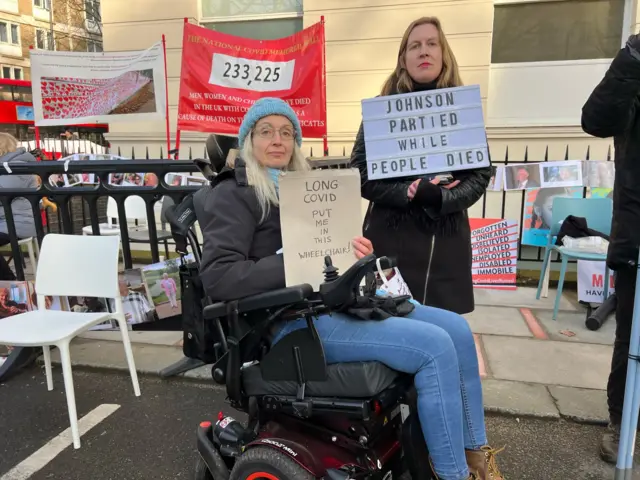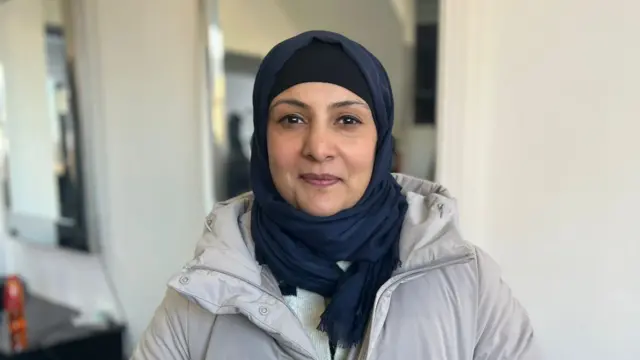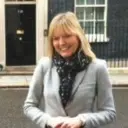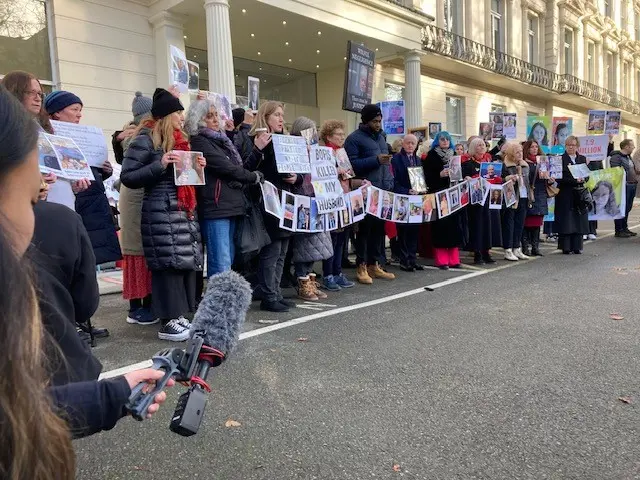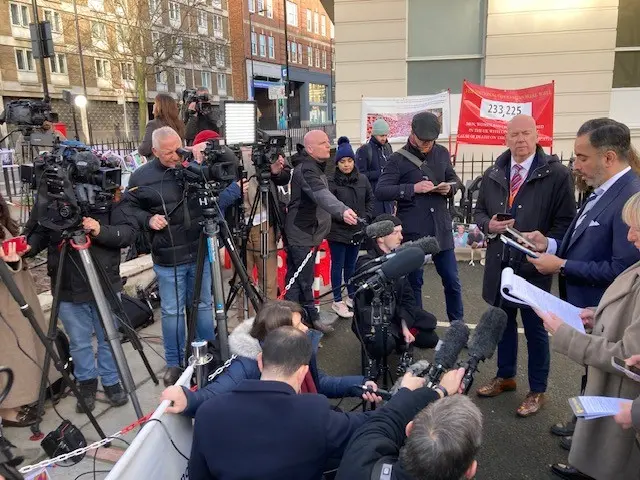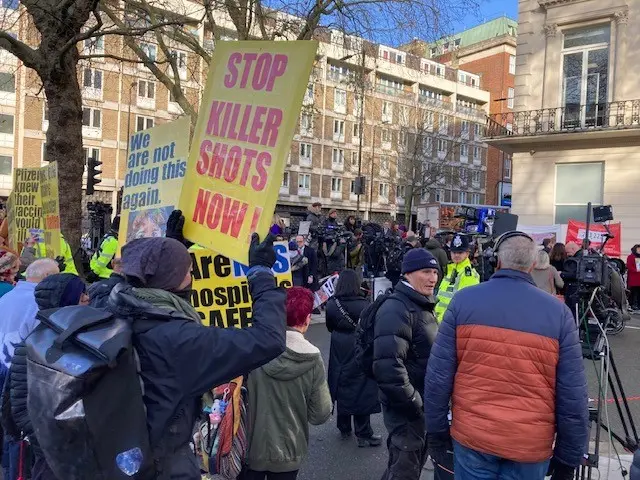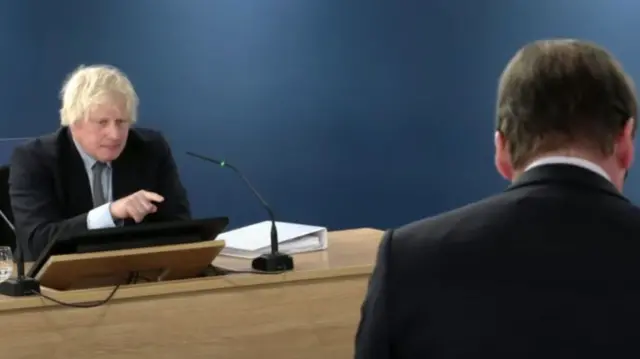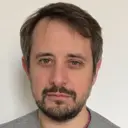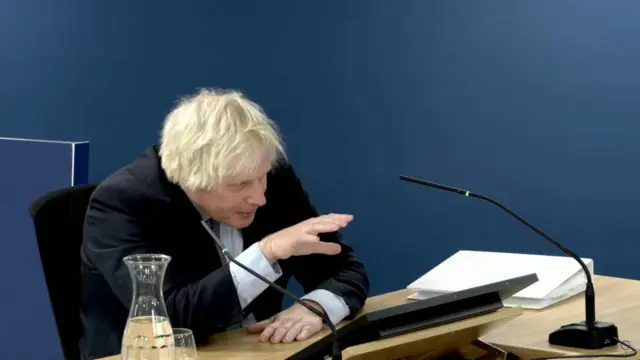I shouldn't have shaken hands with Covid patients in March - Johnsonpublished at 13:58 GMT 6 December 2023
Keith brings up remarks at a press conference in early March 2020 where Boris Johnson said the "UK is well prepared" and "plans are in place".
Keith then asks Johnson about shaking hands with Covid patients at the Royal Free Hospital in north London on 1 March.
"I do think I shouldn't have done that in retrospect," Johnson replies.
"I should have been more precautionary, but I wanted to be encouraging to people."
The clip from that 2020 news conference is below. "I shook hands with everybody, you'll be pleased to know," he said then.
Coronavirus: Boris Johnson tells reporters in March 2020 he 'shook hands with everybody'
